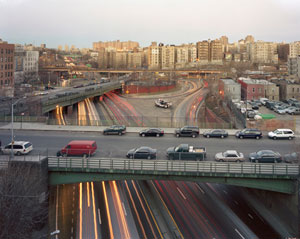I attended the Student Organized Symposium’s (Topic of US Poverty) opening lecture today. Dr. Harlan Beckley gave insightful presentation on the ethics of the US poverty rate, while focusing on how to aid the more disadvantaged communities. Working closely with Washington and Lee University and Middlebury Alumni, Nancy Shepherd, Beckley is the founding program director for the Shepherd Program, which is a program that promotes the academic study of poverty and human capability to undergraduate and law students. The program strives to combine this academic rigor with the personal experience of its students. The resulting goal is a cognitive approach and initiative to engage in various endeavors to counter this rising conflict. I found that Beckley himself exemplified this in his lecture by combining his mastery of economics with the behavioral struggles poverty causes.
Beckley commenced by explaining that the set poverty rate for a US household of four is under $22,000 and currently 14.3% of the US population lives under that statistic. What’s even more disappointing is the break-up of that percentage. Both Single Parents and 31% of people who have not acquired a high school diploma directly affect the high poverty rate. As a developed nation, it is essential that we have an organized method of countering this portion, but I feel there is a reluctance of the public to look for these statistics rather than maintaining an “Illusion of Happiness” that doesn’t confront this reality. Yet, the sad truth is still that one in every five children currently lives under impoverished conditions, and if you are Black/Latino your chances of living below the poverty line are also multiplied by three. Our infant mortality rate is also repulsively higher than most developed nations, confirming 21 countries with better rates. Yet, Beckley also pointed out however that the poverty rate for citizens above the age of 65 has been reduced as a result of social security. So if we can identify an importance in protecting our elderly in this system, than why not our infants and children? Why can’t we improve living conditions for our bottom wing? Is this the result of inequity of voice in our society?
I also found remarkable how Beckley compared the Poverty Rate to Per Capita GDP. His statistics exhibited that Per Capita GDP of a nation may rise, but the poverty rate does not have to fluctuate as a result. So a nation can undergo vast economic growth and while having half of its citizens still below the poverty line. I was shocked to see Beckley’s statistic, which illustrated a wage comparison between the poorest wings in the USA to that of Germany. The lowest economic branch of US Citizens, still having a Per Capita GDP that is 20% greater than Germany, collect less than half the wages of the lowest Germans. This is the income inequality that the forces society to have unequal environmental concern, and class struggle. If wages aren’t going to be properly distributed, how can we expect market forces to act accordingly? This also made me wonder, if GDP wasn’t even a recorded statistic, could the US possibly be considered a developing country?
A reason we study history is to learn not repeat the same political mistakes our species has made in the past. However, we still consistently make the same mistakes in other things, like how we value numbers. Would it be ranting to be connecting the “Illusion of Wealth” our GDP creates to the “Illusion of Wisdom” in our SAT scores? If not, that comparison should run parallel to a history lesson.
Here’s a link to the Shepherd Program: http://www.wlu.edu/x12034.xml
